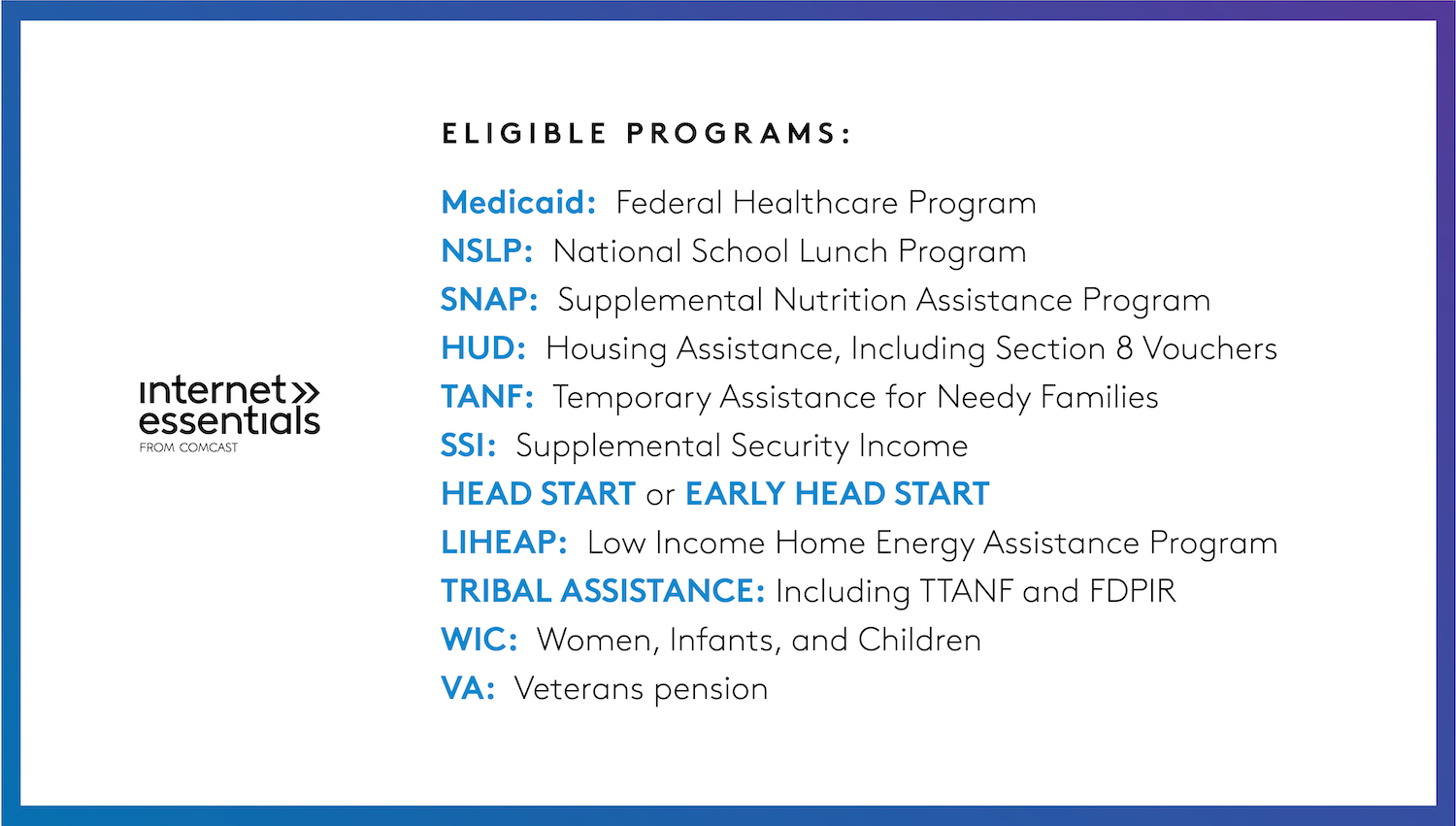
Comcast, the nation’s largest cable provider, is taking steps to close the so-called “digital divide,” announcing Tuesday that it will significantly expand its low-cost internet access program, Internet Essentials, to make just about any low-income customer eligible for the service.
The need for cheap broadband access is real, as class plays a big role in whether or not a household is broadband connected. Households living in cities with the highest poverty rates are as much as ten times more likely not to have broadband access than homes in the wealthier cities, according to U.S. Census data.
Cities near Silicon Valley and around Washington, D.C., for example, have broadband connectivity rates above 90 percent — some of the highest in the country. But in the nation’s poorest cities, like Trenton, N.J. or Flint, Michigan, as little as 40 percent of households have broadband access, leaving entire communities behind.
Comcast’s newly-expanded program may help to change that.

Internet Essentials offers 15Mbps download speeds for $9.95 per month — a full $40 lower than what that service usually costs. These customers also pay no installation fees, and no contracts or credit checks are required for service. Comcast’s only requirements are that applicants must not have any outstanding debt less than a year old owed to Comcast, and not have had service with the provider within the past six months.
To guide our audience through an increasingly complex digital world by humanizing technology and filtering out the noise.
Before August 6, however, there were only five ways to qualify. Parents of children in the National School Lunch Program were eligible, as were community college students in Colorado or Illinois. Low-income veterans, seniors, and HUD housing recipients could also apply.
Starting Tuesday, customers can also prove eligibility by providing proof of benefits from nearly a dozen other federal programs, including Medicaid, SNAP, TANF, and others. This should cover just about every low-income household where Comcast offers service, the company says.

“This expansion is the culmination of an audacious goal we set eight years ago, which was to meaningfully and significantly close the digital divide for low-income Americans,” Comcast NBCUniversal chief diversity officer David Cohen said in a statement.
Internet Essentials has grown steadily since its introduction, from just 340,000 in 2012 to approximately eight million individuals across two million households this year. With this expansion, Comcast says some three million additional low-income households in its service area are now eligible.
Comcast also will continue to offer customers the choice of purchasing a refurbished Windows 10 laptop or desktop system with Microsoft Office and Norton Security Suite installed for just $150. The company said it’s either sold or donated 100,000 of these computers to needy customers.
The company’s moves follow recent political pressure to ensure broadband access is available to all Americans. Former President Barack Obama said in 2015 that “the Internet is not a luxury, it is a necessity.” The Trump Administration has made moves to increase broadband access as well, lessening the paperwork requirements to build out broadband networks in rural areas.
5G may also be a possible solution to the issue, but with the technology being so new, it’s years away from being accessible to a majority of Americans. A fix is needed now, proponents say.
“The Internet is arguably the most important technological innovation in history, and it is unacceptable that we live in a country where millions of families and individuals are missing out on this life-changing resource,” Cohen said.




